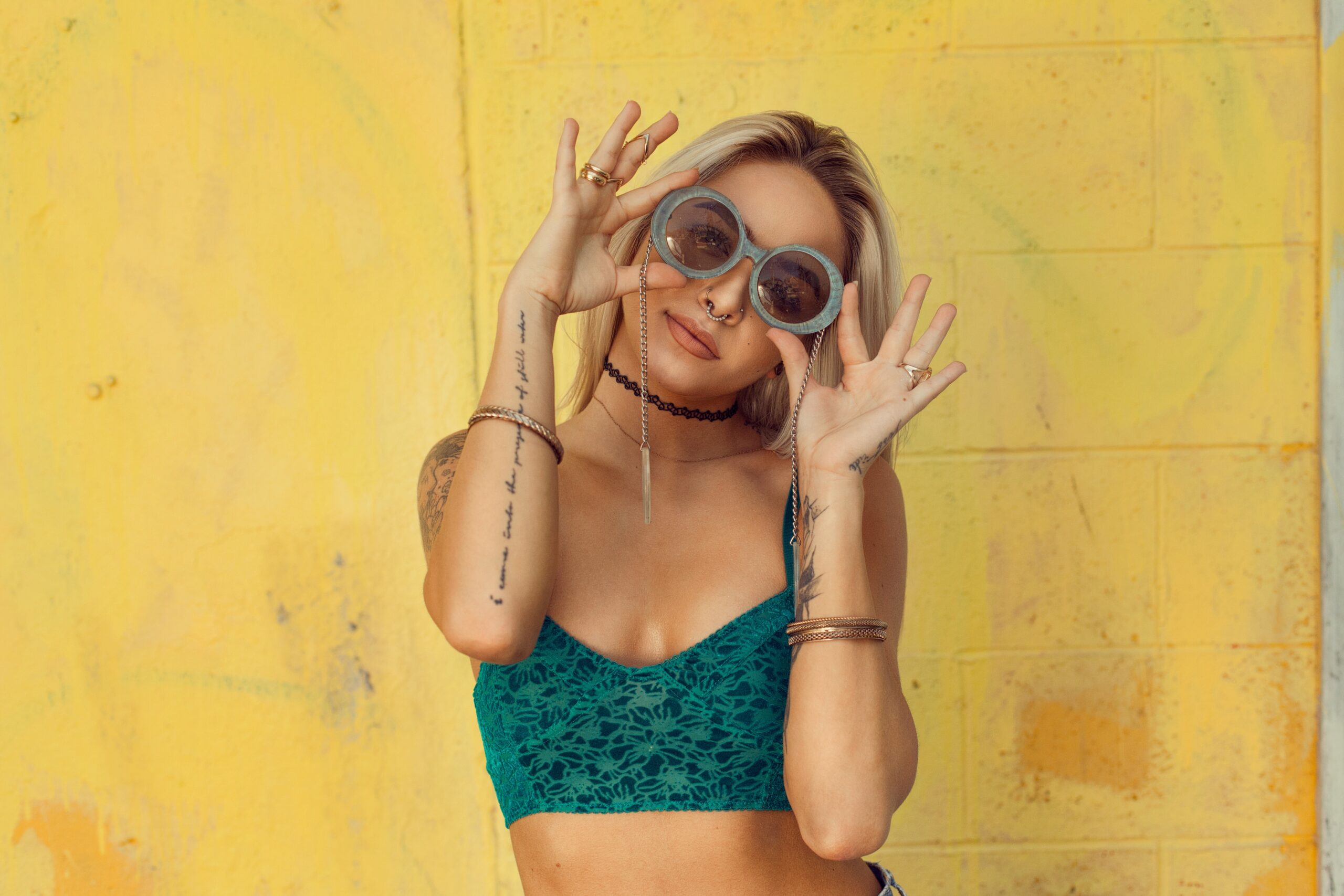The global fashion industry is frequently accused of being the second worst polluter after oil. From production waste to plastic packaging, toxic chemicals, energy sucking e-commerce and global shipping, it impacts our planet in so many different ways that it’s hard to keep track.
Starting with logistics: The fast fashion global supply chain often means a fabric is sourced in one country, shipped to make a garment before being shipped again to a consumer. Luxury brands might assure shoppers their pieces are with sustainable materials and organic cotton in Italy or Portugal, but often these materials still come from far away lands.
Then there’s the packaging. The world produces 381 million tonnes of plastic waste yearly, and without action, this figure is set to double by 2034. Asos has committed to phasing out plastic packaging by 2025 but commitments from other brands are few and far between.
Starting with these two areas we’ve been inspired to share our pick of the most innovative companies taking sustainable fashion seriously and are pushing the apparel industry towards zero waste.
Acne Studios
With so much material innovation available plastic bags and plastic packaging are no longer necessary. In 2020 Acne Studios committed to using Forest Stewardship Council (FSC) certified paper shopping bags instead of plastic bags. By 2022 Acne Studios paper packaging is also FSC certified or made from recycled cardboard.
Acne are also leading the way with artificial intelligence predictive models to manage and reduce product waste. With a goal to sell 91% of their products within the current season they are making strong progress and achieved 88% in 2020/21. Production waste is also a top priority with waste material from one collection used in the next. Where waste is unavoidable, the materials and clothing are donated to local fashion schools or offered to workers.
Filippa K
Another innovative company from Scandinavia, Filippa K, has approached issues around sustainability by using recycled textiles and encourages customers to learn more about the manufacturing process. Alongside selling clothes, their site offers consumers the opportunity to learn more about eco-friendly materials and the impact of petrochemical-based textiles.
While the typical business models seem to encourage customers to buy more and discard past purchases, Filippa K has a whole section dedicated to garment care. Detailing correct storage for different materials, how to mend and maintain and how to wash and care – the site even promotes a circular mindset providing a platform for people to sell pre-owned Filippa K clothing.
Outerknown
Claiming to be the first fashion label founded on a total commitment to sustainability, Outerknown , are a Californian sustainable ready to wear brand that combine elegant personal style with great sustainable design. According to their website they “are driven by a passion for responsible action, courageous change, and great clothes”.
Regularly topping lists of innovative sustainable fashion brands, Outerknown’s main goal is total transparency followed by a commitment to be fully circular by 2030. In addition to strongly championing fair labour, they are amongst only a handful of leading brands to offer consumers an option to sell and buy pre-owned clothing.
With all clothing made with materials sourced in the US, the Creative Director Kelly Slater has also partnered with Ecology Packaging to ensure their clothing is shipped in sustainable, recycled, biodegradable packaging also made in the US.
For Outerknown, innovative fashion doesn’t require an overhaul of international supply chains, it just requires that the company makes its garments using the designers, industry and materials that are close at hand. Environmental impact and climate change are often big factors for fashion labels who fail to see what is available right in front of them.
Stella Mccartney
A highlight of fashion week and one of the biggest ethical and sustainable fashion brands in the world, Stella McCartney combines style, innovation with corporate responsibility. Long before the explosion in e-commerce, fast fashion and the present shift to sustainable fashion, in 2001 her brand was championing faux leather and artificial fur. They switched to only organic cotton in 2008 and went 100% PVC free in 2010. Always ahead of the curve, the brand developed new materials such as bolt threads microsilk in 2017 and plant based plastics.
Keen to reduce plastic use, since 2012 they have only used paper packaging that is either FSC-certified or made from at least 50% recycled content. Furthermore the company has signed up to the Ellen MacArthur Foundation’s New Plastic Economy Global Commitment – pledging that by 2025, all the remaining plastic they use will be recycled, recyclable or compostable.
Chloé
Gabriela Hearst, the creative director of Chloé is one of the sustainability darlings of New York Fashion Week. In their spring collection, one-third of the collection was made from sustainable materials and deadstock fabrics. Proving their credentials as one of the leading innovative companies in the world, even the glue that held together the gold-foil knitted dresses was eco certified.
Prioritising environmental issues since Hearst is an influential sustainability campaigner who staged the world’s first carbon neutral catwalk show before becoming creative director of Chloé. She is widely credited with mainstreaming the use of “deadstock” or leftover fabric in design.
Industry Technology
Besides material innovations many brands are seeking to reduce waste using blockchain technology and artificial intelligence. Brands can help reduce excessive reproduction and counterfeit copies by employing blockchain technology. The technology creates provenance and an unalterable ledger of ownership allowing the fashion industry to safeguard their clothes and accessories against illegitimate replication. The goal being to better secure the supply chain and minimise waste.
Artificial intelligent fashion often means forging a personal connection between the needs of the customer and the provision of improved customer services. Essentially, allowing customers to shop for clothing tailored by technology to their personal size or style. This can serve the environment by ensuring garments are perfectly suited first time and consumers don’t have to return unwanted clothes.
Sizer serves the fashion industry and the need for sustainability innovation by using artificial intelligence to help match consumers with the perfect sizing while they shop. Sizer’s industry-first technology captures shopper’s exact measurement, via a one-time scan, and matches them against garment data to deliver unbeatable accurate, da-driven sizing recommendations that are easy and secure.
Whether it’s innovative materials, recycling, reducing waste or using AI technology, there are countless ways brands can become more eco friendly and sustainable. Our list of the top five demonstrate that the industry is on the right course. Hopefully in time these practices will become the norm.
Never Miss Out
Sign up to receive our latest news and insights

Thank you!
we’ll keep you updated




